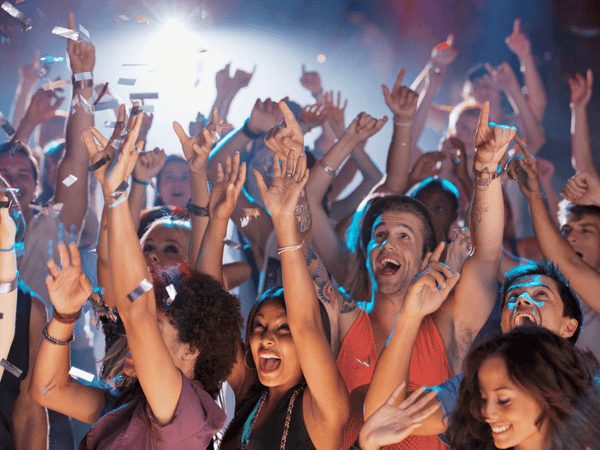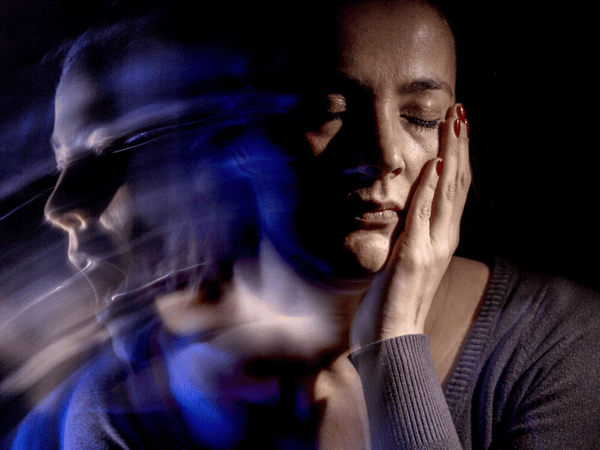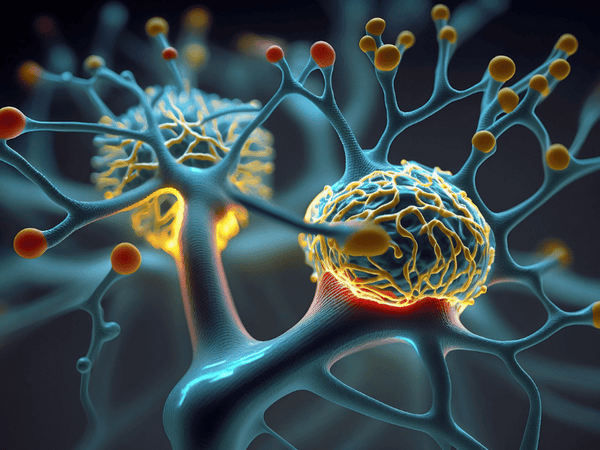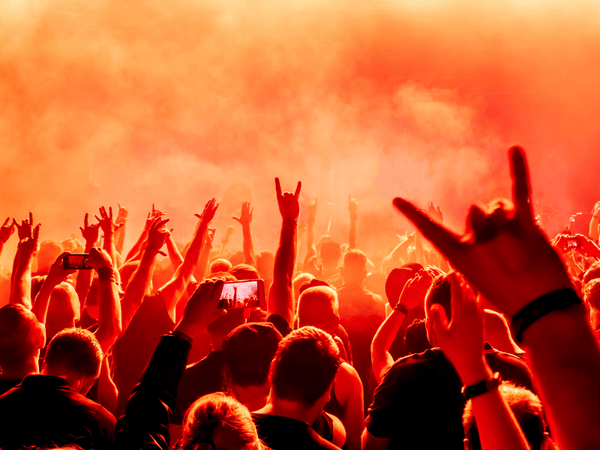After the final encore or favorite song fades away and the lights dim, many concertgoers are left with more than just memories of an unforgettable night. They're left grappling with a complex mix of negative emotions that can often catch them and other fans quite off guard: post-concert depression (PCD). This phenomenon, characterized by most people by a sense of emptiness clinical depression, melancholy, and longing in the days following a live music event, is a reality for countless music fans around the world.
For those who have experienced the euphoria and joy of being surrounded by thousands of fellow fans, united by a shared love for their own favorite song, band favorite singer, artist, and music and a mutual admiration for all the photos and artists on stage, the comedown can be particularly challenging. Suddenly things music over, the moment the adrenaline rush dissipates, things music over, the crowds disperse, and the stark reality of everyday life sets in. What was once a moment of wonder and pure joy becomes tinged with a bittersweet aftertaste.
In this guide, we'll delve into the intricacies and symptoms of post-concert depression: what it is, why it happens, and most importantly, how to cope with feeling it. Whether you're talking to a seasoned concert veteran or talking to friends or someone who's recently experienced their first taste of PCD, this resource aims to provide understanding, support, and practical strategies for navigating the emotional aftermath of attending live music events.
So, if you've ever found yourself feeling inexplicably down in the days following a concert, you're not alone. Let's explore the phenomenon of post-concert depression together and discover how to turn the post-concert blues into an opportunity for growth and self-discovery.
The Concert Experience: A Rollercoaster of Emotions

Attending a live concert is a transformative experience unlike any other. From the moment you step into the venue, you realize you're enveloped in a whirlwind of sights, sounds, and sensations that ignite your senses and elevate your mood. The anticipation builds as you wait for the lights to dim and the music to start, and when it finally does, you realize it's as if the world outside fades away, leaving only you and listening to the music.
As your favorite bands and artists take the stage and the first notes of familiar songs fill the night air, a wave of euphoria washes over you. It's a feeling of pure joy and exhilaration, fueled by things like music, the energy of the crowd, and the raw emotion pouring forth from the performers. At that moment, everything else fades into the background as you lose yourself in the music, singing along at the top of your lungs and dancing like nobody's watching.
But for most people, the concert experience is more than just a temporary escape from reality. It's also a deeply emotional journey filled with moments of connection, reflection, and catharsis. For many fans, concerts offer a sense of belonging and community unlike any other, as they share their love for their favorite artist, their favorite band name, and music with like-minded individuals from all walks of life. Whether you feel sad singing along with strangers in the crowd or exchanging knowing smiles and photos with fellow fans, there's a sense of camaraderie that transcends language and borders.
And then, just as quickly as it began, the moment of the concert comes to an end. The lights come up, the music fades away, things music is and reality comes crashing back in. For some, feeling this abrupt return to sleep and life in the real world can be jarring, leaving the person around them feeling disoriented sad, and out of sorts. It's as if they realize they've been wrenched from a blissful dream and thrust back into life and the harsh light of day, leaving the person around them longing for the fleeting moments of sleep, magic, and wonder they experienced just moments before.
In the next few weeks, after the aftermath of the concert, many fans will find themselves riding an emotional rollercoaster as they process all the photos, videos, and highs and lows of the experience. Some may feel a profound sense of sadness or loss, mourning the end of an unforgettable night and yearning to recapture the magic they felt in the crowd. Others may feel a sense of nostalgia, reminiscing about the event, all the photos and memories they made, and the friends and loved ones they shared them with.
But no matter what emotions you feel sad experiencing, it's important to remember that they're all a natural part of what many concertgoers experience each week. From the exhilarating feeling of overwhelming highs to the melancholy feeling of sad lows, each emotion serves as a reminder of the power of music to move us forward, inspire us, and bring us together.
And as we'll explore in the following weeks' sections, there are plenty of ways for concertgoers to navigate the post-concert blues and find solace in the aftermath of even the most unforgettable nights.
The Aftermath: Recognizing Post-Concert Depression
As the final chords fade away and the lights dim, many concertgoers find themselves facing a reality check: the aftermath of the night after attending the concert, a night where they realize the lingering effects of post-concert depression (PCD) can take hold. What was once a euphoric high can quickly turn into a feeling of emptiness and longing in the days and weeks that follow.
Recognizing the signs of post-concert depression is the first step in understanding and addressing this phenomenon. While it's normal to feel a sense of sadness or nostalgia after an exciting event comes to an end, PCD goes beyond the typical post-event blues.
Symptoms may include:
-
Lingering feelings of sadness or melancholy
-
A sense of emptiness or loneliness
-
Difficulty concentrating or focusing on tasks
-
Loss of interest in activities once enjoyed
-
Irritability or mood swings
-
Physical symptoms such as fatigue or changes in appetite
These symptoms can vary in intensity and duration, depending on factors such as individual temperament, the significance of a favorite song, favorite singer, or artist, or the favorite artist or song itself, the concert experience, and external stressors. However, if these feelings persist for an extended period or significantly impact daily life functioning, it may be a sign of more serious emotional distress or clinical depression that warrants further attention.
Understanding the triggers that can exacerbate post-concert depression is also crucial. While the end of a concert alone can be enough to trigger negative feelings and other negative feelings and other negative emotions and other negative feelings out of sadness or disappointment, other factors may contribute to the intensity of these negative feelings and other negative emotions.
For example:
-
Unrealistic expectations: Building up the concert experience in your mind and expecting it to live up to impossibly high standards can set you up for disappointment when reality falls short.
-
Comparison to others: Seeing friends or fellow fans rave about their concert experiences on social media can lead to feelings of envy or inadequacy if your own experience didn't measure up.
-
Post-concert letdown: The abrupt transition from the excitement of the concert to the routine of everyday life can leave you feeling deflated and longing for the thrill of the live music experience.
Why does post-concert depression happen?
Post-concert depression (PCD) is a clinical depression, not a mental illness that is simply a figment of a person or imagination; it is a clinical phenomenon and mental illness that has tangible psychological and neurological underpinnings that contribute to its occurrence. Understanding why PCD happens can shed light on how most people cope with it effectively.
Psychological Factors

PCD often stems from the emotional high experienced during a concert. The intense excitement, connection with music and artists, and sense of community can create a euphoric state that feels almost otherworldly. When the concert ends, returning to the mundanity of everyday life can often also feel overwhelming, sad, and like a stark contrast, leading to negative feelings of disappointment or emptiness.
Neurological Aspects

The event or concert experience triggers the release of neurotransmitters like dopamine and serotonin, which are associated with pleasure, reward, and mood regulation and also affect the brain itself. This flood of neurotransmitters during the event or concert contributes to feelings of euphoria and excitement. However, when the event or concert ends, the brain and levels of these neurotransmitters drop back to baseline, which can leave individuals feeling deflated or even experiencing withdrawal-like symptoms.
Impact of Adrenaline

Concerts are often adrenaline-fueled experiences, with the energy of the crowd and the music itself ramping up the person's and body's adrenaline production. This heightened state of arousal can enhance the emotional intensity of the person and concert experience but can also lead to a crash once the adrenaline wears off, contributing to feelings of post-concert blues.
Coping Strategies for Post-Concert Depression
While post-concert depression (PCD) can feel overwhelming, there are various coping strategies that individuals can employ to navigate through this emotional aftermath and find solace in the days following a concert:
Emotional Support and Connection
-
Seek solace in fellow fans and support groups: Reach out to friends or online communities who share your passion for music. Sharing your post-concert feelings with others who understand can provide validation and comfort.
-
Share experiences on social media platforms: Use social media platforms to connect with fellow concertgoers and share your favorite memories and moments from the concert. Engaging with others who attended the same event can help you feel connected and less alone.
-
Attend post-concert meetups and events: Look for opportunities to connect with other fans in person, whether it's through organized meetups, fan clubs, or local music events. Surrounding yourself with people who share your love for music can help ease feelings of post-concert loneliness.
Engaging with Music
-
Create playlists of favorite concert moments: Compile a playlist of songs from the concert or tracks by the artists you saw live. Listening to these songs can evoke memories of the concert experience and provide a sense of comfort and connection.
-
Listen to live recordings or watch concert videos: Seek out live recordings or videos of the concert to relive the experience from the comfort of your own home. Seeing and hearing the performances again can reignite the emotions and excitement you felt during the concert.
-
Explore new music to reignite passion: Use the post-concert period as an opportunity to discover new artists or genres of music. Exploring new music can help channel your energy and passion into something positive and exciting.
Self-Care Practices
-
Prioritize rest and relaxation: Give yourself permission to rest and recharge after the excitement of the concert. Engage in activities that help you unwind and relax, whether it's taking a bath, practicing yoga, or simply spending time alone.
-
Engage in physical activities to boost mood: Exercise has been shown to have a positive impact on mood and mental well-being. Whether it's going for a run, taking a bike ride, or practicing a sport, physical activity can help release endorphins and alleviate feelings of sadness or lethargy.
-
Practice mindfulness and meditation: Incorporate mindfulness and meditation into your daily routine to help cultivate a sense of calm and balance and manage stress. Even just a few minutes of mindfulness practice each day can have a profound impact on your mental health.
Reflecting on the Experience
-
Journaling thoughts and feelings post-concert: Take some time to reflect on your concert experience by journaling your thoughts and feelings. Writing about your emotions can help you process them and gain insight into why you're feeling a certain way.
-
Recognizing the transient nature of emotions: Remember that feelings of post-concert depression are temporary and will eventually pass. Allow yourself to fully experience and acknowledge your emotions without judgment, knowing that they're a natural part of the concert experience.
-
Setting realistic expectations for future events: Manage your expectations for future concerts by recognizing that no event can replicate the exact same experience. Instead of seeking to recreate past highs, approach each concert with an open mind and a willingness to embrace whatever emotions arise.
Seeking Professional Help: When to Consider Therapy
While coping strategies can be effective in managing mild to moderate post-concert depression (PCD), there may be instances where seeking professional help is necessary to address more severe or persistent symptoms of clinical depression. It's important to recognize when your post-concert blues may be indicative of either clinical depression or a deeper emotional issue that requires professional intervention.
Here are some signs that it may be time to consider therapy:
Symptoms Impacting Daily Functioning: If feelings of sadness, emptiness, or hopelessness persist for an extended period and significantly interfere with your daily life, or affect your ability to carry out daily activities such as work, school, or relationships, it may be a sign that you could benefit from professional support.
Suicidal Thoughts or Behaviors: If you experience thoughts of self-harm or suicide or engage in self-destructive behaviors such as substance abuse or clinical depression, it's crucial to seek help from a mental health professional immediately. These are serious symptoms of a mental illness or health illness that require immediate attention and intervention.
Difficulty Coping: If you find that your usual coping strategies are ineffective in managing your post-concert depression, or if you feel overwhelmed and unable to cope with your emotions on your own, therapy can provide you with the support and guidance you need to navigate through this challenging time in daily life.
Underlying Mental Health Conditions: If you have a history of other serious mental health illnesses or other mental health issues such as depression, anxiety, or bipolar disorder, you may be at a higher risk for experiencing more severe post-concert depression. In such cases, therapy can help you address underlying mental health illness and other mental health issues and develop coping strategies tailored to your specific needs.
Persistent Feelings of Isolation or Loneliness: If post-concert depression is accompanied by persistent feelings of isolation, loneliness, or alienation from others, therapy can provide you with a safe and supportive space to explore these feelings and develop healthier ways of connecting with others.
When seeking therapy for post-concert depression symptoms, it's essential to find a therapist who is experienced in working with individuals experiencing grief, loss, stress, anxiety, and emotional distress. Cognitive-behavioral therapy (CBT), mindfulness-based therapies, and interpersonal therapy are just a few of the approaches that may be helpful in addressing the symptoms of post-concert depression.
Remember that reaching out for help is a sign of strength, not weakness. Therapy can provide you with the tools and support you need to navigate through your post-concert depression and emerge stronger and more resilient on the other side. Don't hesitate to seek help if you're struggling—it's the first step toward healing and recovery.
Conclusion
Navigating through the emotional aftermath of a concert can be a challenging journey, but it's one that millions of music fans around the world experience each year. Whether you're grappling with feelings of sadness, nostalgia, or longing in the days and weeks following a concert, it's important to remember that you're not alone.
Post-concert depression (PCD) is a natural and often temporary response to the intense highs of the concert experience. Understanding the triggers and psychological factors that contribute to PCD can help you make sense of your emotions and develop effective coping strategies for managing them moving forward.
From talking about music, seeking support from friends and fellow fans, and engaging with music to practicing self-care and mindfulness, there are plenty of ways for a person to navigate through post-concert depression and find solace in the aftermath of even the most exhilarating live music experiences. Remember to be gentle with the person and yourself, and give the person and yourself permission to feel whatever emotions arise.
And if you find that your post-concert depression is particularly intense or persistent, don't hesitate to seek professional help. Therapy can provide you with the support, guidance, additional resources, and tools you need to navigate through this challenging time and emerge stronger and more resilient on the other side.
In the end, post-concert depression is a reminder of the power of music to move us forward, inspire us forward, and bring us together. It's a testament to the profound impact that listening to live music can have on our lives, our memories, and the deep connections we form with both the music we play live and the community of other fans, and loved ones who share our passion for music.
So the next time you play live and find yourself grappling with post-concert depression symptoms or anxiety, remember that it's all part of the journey—the highs and the lows, the joy and the sadness. Embrace it all, knowing that each emotion is a testament to the transformative power and joy of listening to music play live and listening to the indelible mark it leaves on our hearts and souls.

